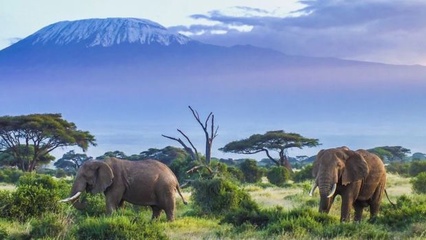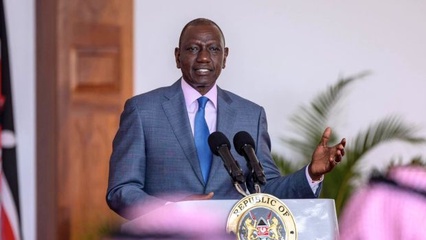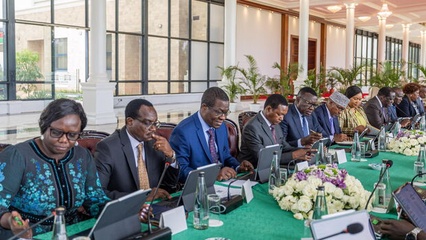Govt Transfers Management of National Park After Over 50 Years

The development was revealed in a Gazette notice in the form of a Deed of Transfer, detailing the transfer of management functions, funding and labour workforce...
✨ Key Highlights
After 52 years under national government control, Amboseli National Park's management has been officially transferred to the Kajiado County Government. This significant shift, formalized by a Deed of Transfer, means Kajiado County will now oversee daily operations, conservation, tourism, and wildlife protection, while the national government, through the Kenya Wildlife Service (KWS), retains ownership and oversight.
- The transfer became effective 21 days from its execution date of October 14, following months of lobbying and approval by President William Ruto's cabinet in November 2024.
- A revenue-sharing formula dictates that Kajiado County will receive 100 percent of the park's revenue by the 2028/2029 FY, with five percent perpetually reserved for the national government.
- The agreement is for an initial renewable period of 15 years, marking a major decentralization in Kenya's park management and offering Kajiado County a new significant asset and revenue source.
Continue Reading
Read the complete article from Kenyans
Part of the Day's Coverage
Government Announces Leadership Changes and Transfers Management of Amboseli National Park - October 2025
President William Ruto revoked the appointment of former Chief of Defence Forces, General Julius Karangi, from the National Council for Population and Development (NCPD) board. This was part of broader leadership changes announced by the Kenyan government across several state corporations, with various Cabinet Secretaries making new appointments and revocations. In another significant administrative shift, the management of Amboseli National Park has been officially transferred to the Kajiado County Government after 52 years under national control. The Deed of Transfer gives Kajiado County oversight of daily operations, conservation, and tourism, while the Kenya Wildlife Service (KWS) retains national government ownership and oversight.




